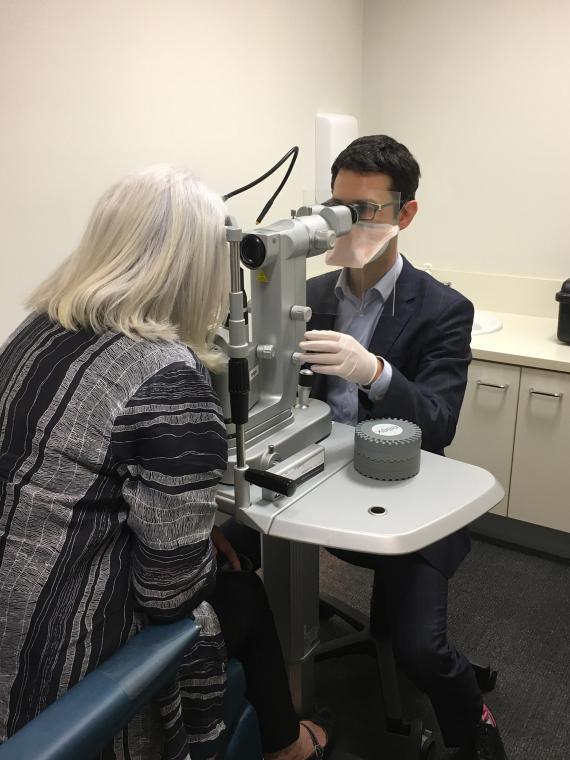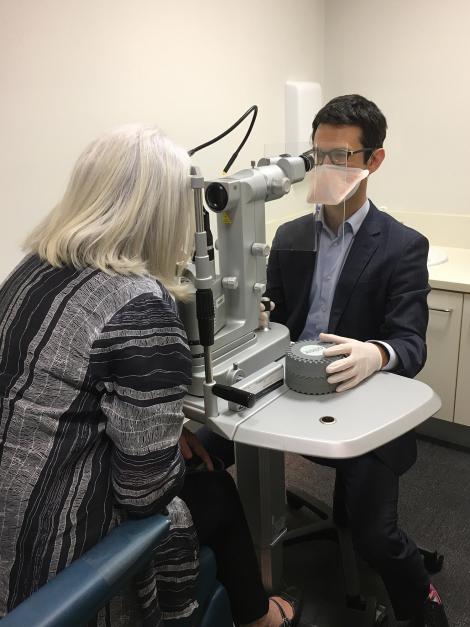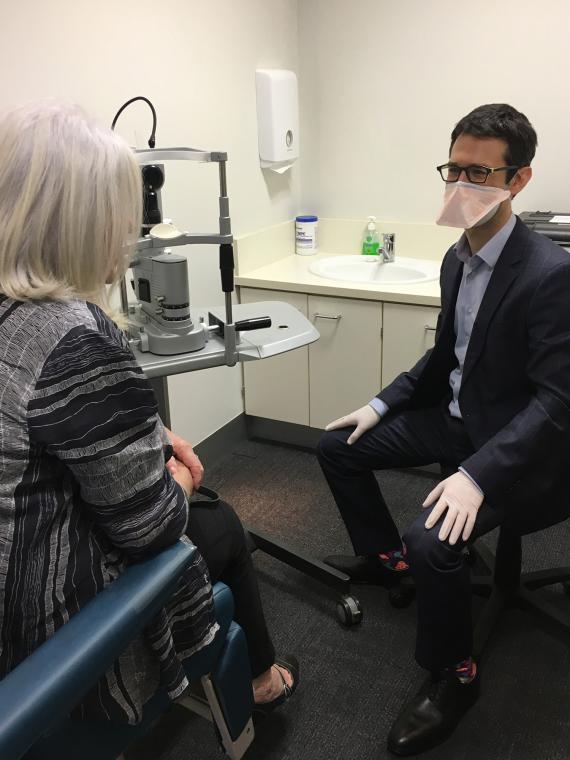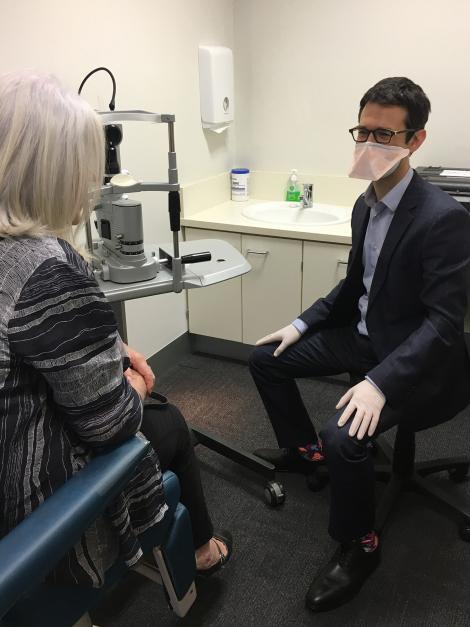Covid-19
How is COVID affecting your clinical services?
In the new COVID world we must balance our patients’ eye health needs with minimising their risk of contracting COVID-19. In particularly elderly patients and those with chronic illness are vulnerable to COVID.
It is important to remember that patients are likely to be anxious at this time – anxious of contracting COVID, or of missing eye health checks and their vision suffering because of this. Through all of this my staff and I are remaining calm, caring and supportive of our patients.
Opthalmology and emergency eye care
I am still continuing to provide regular consulting services for Ophthalmology, glaucoma and cataract care, as well as emergency and general eye health care. This is becoming increasingly critical as many Optometrists and other Ophthalmologists have closed their practices during this time.
My practice is being incredibly careful with a range of precautions to minimise risk of COVID transmission occurring (discussed below).
Cataract care
We are currently providing consultations for patients who wish to learn more about cataract surgery and book in a time for their surgery. For patients who I see that have cataracts, together we discuss the nature of cataracts and take time to talk through the process of cataract surgery. At my practice we can also perform the preliminary preparations and measurements to ensure optimal vision following cataract surgery.
Glaucoma care
Glaucoma services must continue, but with modified practices to ensure risk minimisation. This is because people are not generally aware of their degree of glaucoma damage, and will be unaware if the glaucoma has worsened since their last review. Glaucoma needs to be checked regularly with eye pressure measurement, visual field testing (which tests the peripheral vision) and scans of the optic nerve. Just because a patient feels fine does not necessarily mean their glaucoma is under control. Unfortunately this sort of testing is not suited for telemedicine.
For many patients an annual glaucoma review cannot be safely deferred until the risk of COVID passes (and who knows when that will be?). I am still pleased to offer ongoing glaucoma monitoring services, and see new patients, and continue or commence eye pressure lowering treatment as required. I can still perform glaucoma laser treatments as well as all forms of surgery.
If, for various reasons, people are unable to attend their regular glaucoma appointments, I am pleased to call them and offer a telehealth consultation, to touch base, see how they are and how their treatment regimen is going. A supportive phone call is generally appreciated in these times of hardship.
We are currently providing consultations for patients who wish to learn more about cataract surgery and book in a time for their surgery. For patients who I see that have cataracts, together we discuss the nature of cataracts and take time to talk through the process of cataract surgery. At my practice we can also perform the preliminary preparations and measurements to ensure optimal vision following cataract surgery.
Are glaucoma patients likely to be inclined to miss appointments due to COVID-19 and if so, what are the potential long-term consequences?
As mentioned above there are many challenges to providing critical care during the COVID period. Just because a person might feel their eyes and vision are fine, does not mean their glaucoma is under control. To thoroughly monitor glaucoma requires eye pressure measurement, clinical tests of peripheral vision and a scan of the optic nerve. Non attendance, and even telemedicine might lead to unknown damage to the optic nerve occurring because these tests are not being performed.
Undoubtedly, many patients will self-elect not to attend routine appointments because of COVID, which is often very reasonable but may have poor consequences to their eye health. More than ever it is my task as a health care provider to advocate for my patients, look after their best interests and be creative in my approach to healthcare.
My personal approach is to call each patient for whom the clinical visit has not occurred, to stay in touch, discuss their management and renew any scripts as required.

Tell us more about your telehealth services
Low risk patients scheduled for routine appointments may elect to have the appointment via telemedicine; although as discussed above this is not suitable for glaucoma monitoring or screening. As mentioned above, while telemedicine does not allow most of the critical eye health checks, it is better than nothing and allows the chance for my patients to ask questions, discuss their concerns and their treatment, and make plans as to when we can reasonably schedule the next face-to-face appointment.
When a patient’s clinical appointment is deferred because of COVID, they are offered a telehealth consultation with me for free. This is generally by phone but can be done via videoconferencing.

What has your practice put in place to make it ‘safer’ for patients to attend appointments?
Because patients still will require clinical reviews in this period, and it is important to ensure their safety, as well as that of the practice staff and clinicians. This is what my practice does, according to current recommendations:
The most important safety procedure is COVID exposure screening that occurs before the patient or staff attends the practice. Anyone who has returned from overseas within 14 days, any symptoms of a fever or URTI, contacts with COVID or recent overseas travel should not attend. Accompanying persons should be limited to one per patient. On arrival all staff, patients and accompanying persons should use hand sanitiser, receive a non-contact infra-red temperature check, be rescreened for COVID exposure and ensure a 4m social distancing from front-desk staff and in the waiting room. Appointment frequency has been reduced to avoid crowding in the waiting room.
When I consult patients I use a Perspex protective screen on the slit lamp, wear gloves and a N95 (aerosol resistant) mask. I wipe down slit lamps and chairs and of course perform hand hygiene between patients. My staff also wear masks and keep strict hygiene wiping down surfaces, instruments and machines between patients. Patients are not required to wear masks or gloves but often choose to do so, which is fine.

What else can you say to people with eye health concerns?
A key message for us all is that eye healthcare is important, and should not be neglected in the context of COVID – patients should feel free to call and discuss their concerns with me, and decide if matters could be sorted by telehealth or whether an in person attendance is required. Provided a medical practice strictly adheres to all safety policies (such as those outlined above), the risk of transmission of COVID at the clinic is incredibly low.
